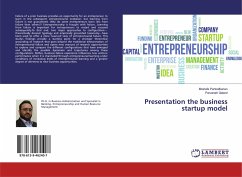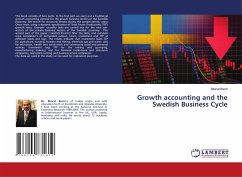
Presentation the business startup model
Versandkostenfrei!
Versandfertig in 6-10 Tagen
27,99 €
inkl. MwSt.

PAYBACK Punkte
14 °P sammeln!
Failure of a prior business provides an opportunity for an entrepreneur to learn in the subsequent entrepreneurial endeavor, but learning from failure is not guaranteed. Why do some entrepreneurs learn less from failure than others?! Entrepreneurship is fraught with failure. Learning from failure is important for entrepreneurs to restart and succeed subsequently.To that end, two major approaches to configuration-theoretically derived typology and empirically grounded taxonomy-have been used to offer a more nuanced view of entrepreneurial failure. This study's findings provide a starting point ...
Failure of a prior business provides an opportunity for an entrepreneur to learn in the subsequent entrepreneurial endeavor, but learning from failure is not guaranteed. Why do some entrepreneurs learn less from failure than others?! Entrepreneurship is fraught with failure. Learning from failure is important for entrepreneurs to restart and succeed subsequently.To that end, two major approaches to configuration-theoretically derived typology and empirically grounded taxonomy-have been used to offer a more nuanced view of entrepreneurial failure. This study's findings provide a starting point for a stronger theoretical grounding of research that goes beyond the traditional interpretation of entrepreneurial failure and opens new avenues of research opportunities to explore and compare the different configurations that have emerged and identify the possible dynamism and trajectories among these configurations. Rather, business failure experience influences new venture performance when it is channeled through entrepreneurial learning under conditions of increasing levels of entrepreneurial learning and a greater degree of alertness to new business opportunities.












